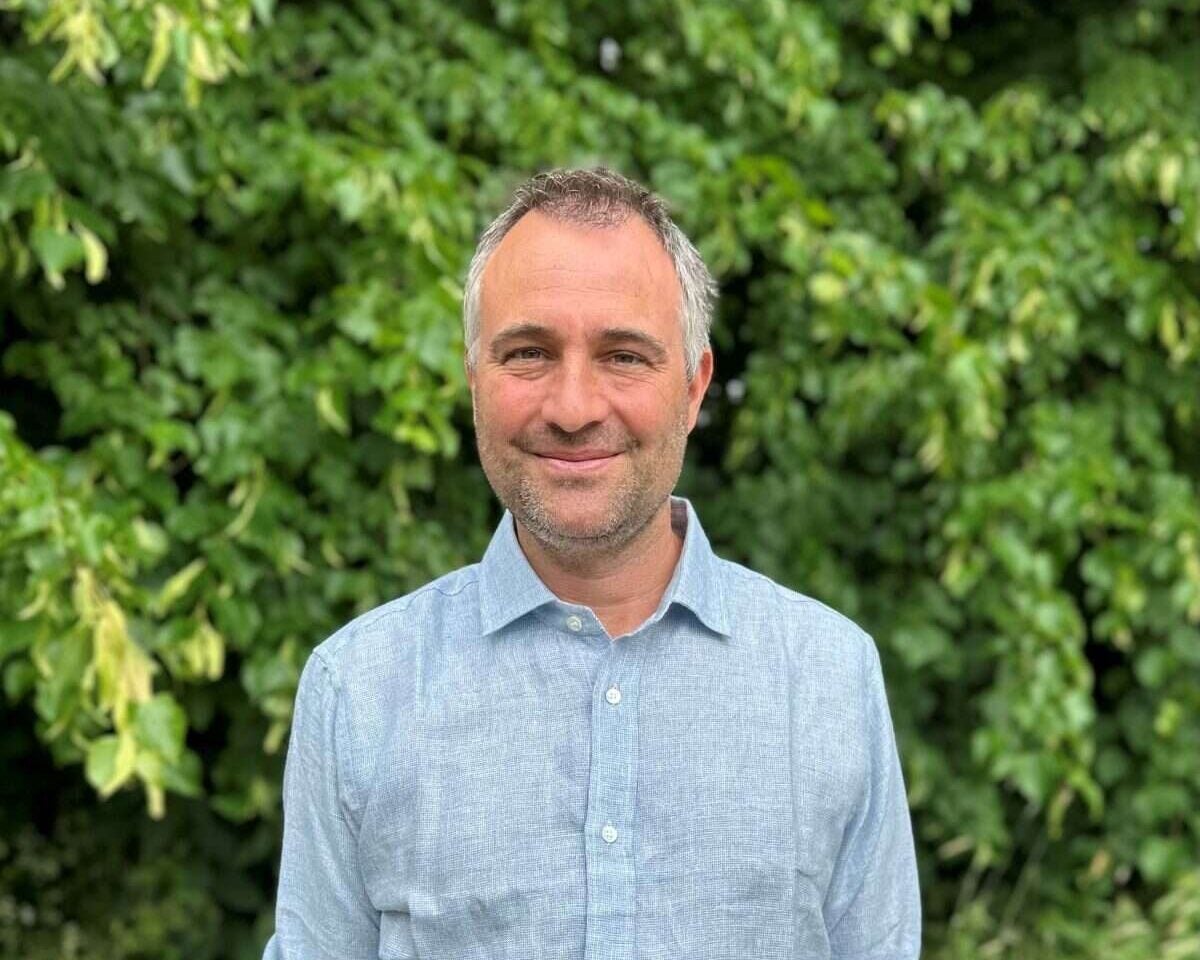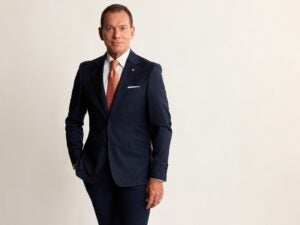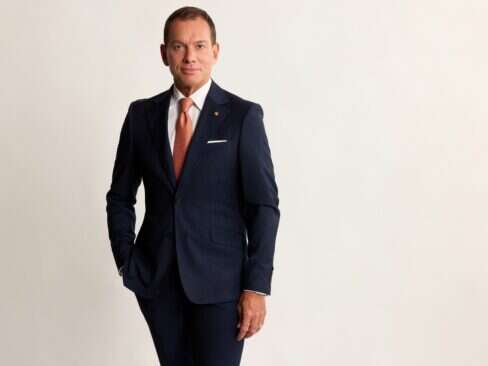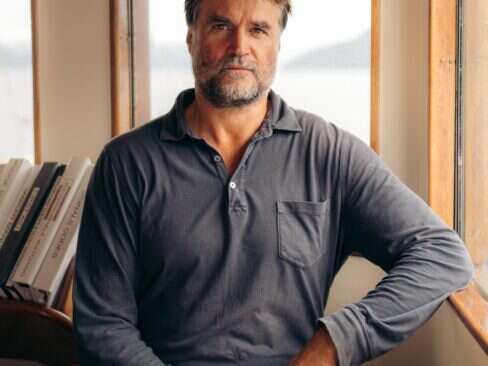Ben Goldsmith appears over video call from his house in North London looking a little flustered. This evening, the environmentalist and financier is attending the Oxford Farming Conference as a headline speaker to put forward his motion that emphasis on food production is holding back nature recovery in Britain’s national parks. He’s likely to be met with a frosty reception.
“I’ve never done any kind of debate before, and now I’m going to be having an hour-long argument with a beefy National Farmers Union representative in front of 850 people wearing black tie… can you imagine?”
Hardly pausing for breath, he launches into his impassioned argument, beginning with his conviction that intensive overgrazing by sheep is destroying the land and contributing to devastating floods up and down the country. Next, he starts a blistering attack on the billions of pounds of taxpayers’ money he says are being plunged into subsidies to the farming industry, while the parks fall into an ever-greater state of disrepair.
“Nature in this country is worse than almost any other on Earth,” he tells me with a frustrated sigh. “It’s a national disgrace! We’re giving away all this money… we ought to get something in return.”
[See also: Mark Donald on Whisky, Foraging and Tattie Scones]
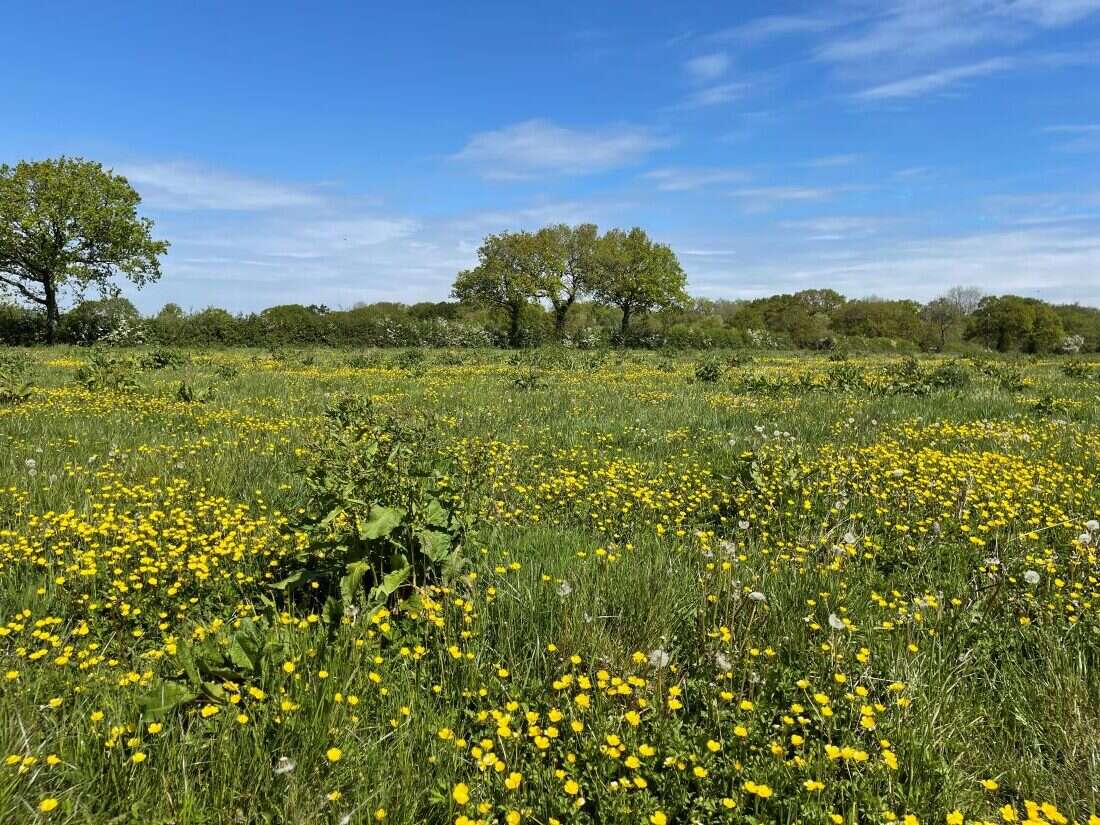
Goldsmith has ruffled a few feathers in his time and tonight will be no exception. His staunch campaigning on nature and rewilding has got him into hot water with politicians and farming leaders over the years. But he doesn’t let his critics phase him. “They’re mostly going to be representatives from the farming industry watching tonight, so I’m definitely going to be the bogeyman in front of these people,” he grins.
It’s rare to come across someone as dedicated to their cause as Goldsmith. When it comes to the environment, his energy is boundless; at one point during our conversation, he pauses to apologize for “machine gunning” me with information and shoots me a sheepish smile (“Sorry, we’re just talking about all of my favorite topics!”). He’s also charming and charismatic – even when he’s rattling off statistics about nature degradation (something tells me he’s going to be just fine at the debate this evening).
Today, he splits his time between campaigning for rewilding in Britain, chairing the Conservation Collective – a global network of philanthropic funds he founded in 2020 – and persuading investors to put their money into nature-restoring initiatives with local partners as part of his new business, Nattergal (Danish for ‘nightingale’). He’s also fully immersed in rewilding efforts at his Somerset farm.
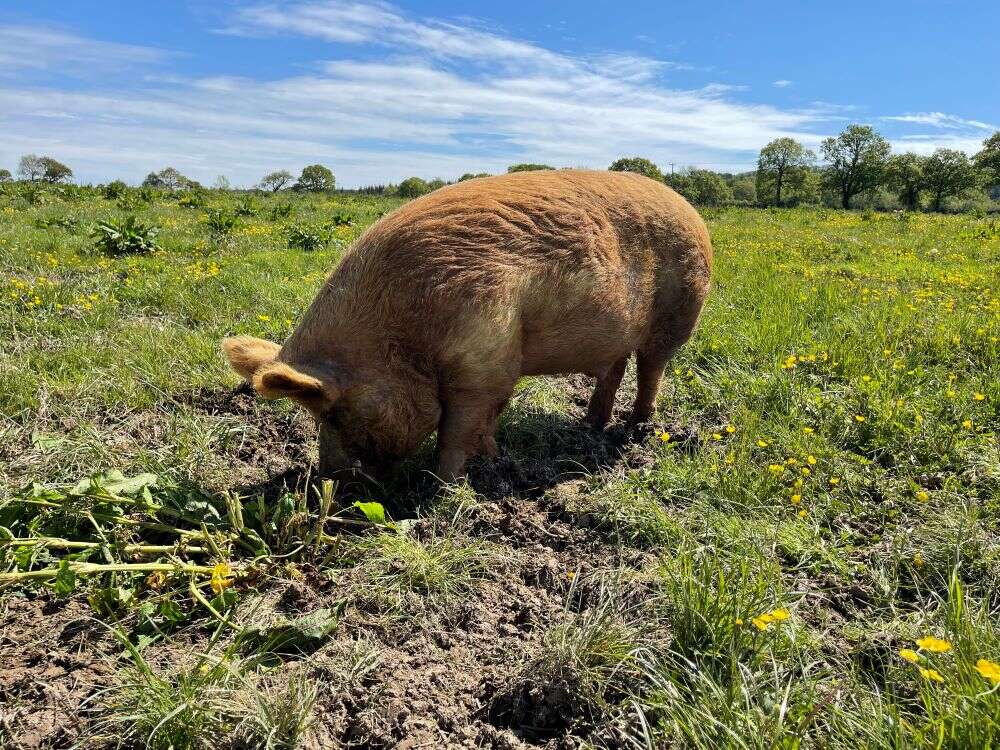
Where did his deep-rooted love of nature begin? The youngest son of the late billionaire businessman James Goldsmith and Lady Annabel Goldsmith, he grew up in suburban West London, with his brother Zac (the former Conservative MP and UK environment minister). His childhood was filled with trips to Richmond Park – a sprawling expanse of hills and woodland teeming with wildlife.
“The park was our playground,” he tells me, his eyes lighting up. “The ancient oak trees and bats and birds and ponds and frogs… I think all children are born with an innate love of nature. And in my case, I was quite an obsessional kid. The obsession lived on to adulthood.”
Goldsmith had always dreamed of having his own plot of land and, in his twenties after his father died, he used a chunk of his inheritance to buy a farm in Somerset where he still spends most of his time. “It’s absolutely thrumming with life,” he beams. “We have beavers that have transformed the little stream that runs through the valley into this kind of mosaic wetland, and on dark summer nights glow worms flicker above the land.”
This isn’t by chance, though. Goldsmith has spent years painstakingly rewilding the land since his 15-year-old daughter Iris died in a quad bike accident at the farm in 2019. During the darkest time of his life, he found flickers of solace in nature. “Just having a cup of tea on a sunny morning and listening to the birdsong, or losing myself for a moment watching dragonflies on the pond… I realized how important it is to contact Mother Nature when we’re suffering,” he says. “My teenage son said to me ‘Why do we have to confine nature around the edges? Why don’t we just have a farm that is all nature?’ And I thought: ‘Why not?’”
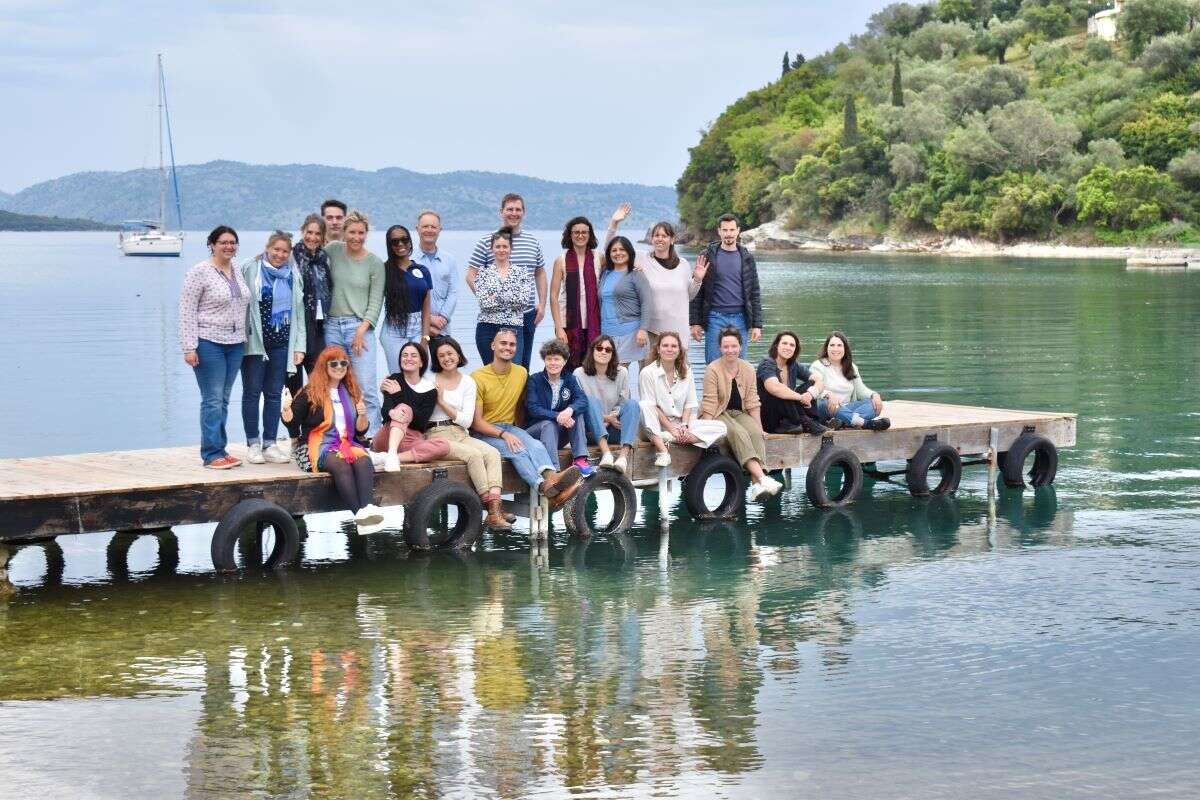
He set to work ripping out the fences, opening up the gaps in the hedges and filling in the ditches to let the water flow naturally through the land. Next, he removed all of the livestock (100 cattle and sheep) before slowly bringing back a small number of free-roaming longhorn cattle. It wasn’t long before the land began to spring back to life; beavers made a miraculous return to the river while the shape of the fields gradually started to dissolve into the landscape.
Goldsmith acknowledges he’s been incredibly fortunate to have access to nature in this way. In 2020, he convinced London’s Labour mayor, Sadiq Khan, to set up a rewilding task force to enhance biodiversity and support nature recovery in the city. “Just before Christmas there was amazing footage of [Khan] releasing beavers almost the same size as him into the river at Ealing,” he chuckles. “There’s no reason why we shouldn’t have nature on our doorstep – it should be everywhere.”
His time spent working with the government as a non-executive board member of the Department for Environment, Food and Rural Affairs (Defra) was eye-opening and, at times, frustrating. “Industrial farming and fishing have really got government by the balls,” he says. “The image we have of them as being like Captain Birdseye on a little boat with yellow oil skins and a white beard is often not the reality. In fact, it’s a multinational-owned ship sucking out thousands of tonnes of wildlife from the sea with every passing trip. Our seas have been utterly plundered.”
Despite some tussles with his colleagues during his time at Defra, Goldsmith oversaw important new pieces of legislation – the Fisheries Act, Agriculture Act and Environment Act – which he believes represent a series of victories for protecting nature in the long run.
[See also: Alex Assouline on Bold Ambitions for His Family’s Luxury Publisher]
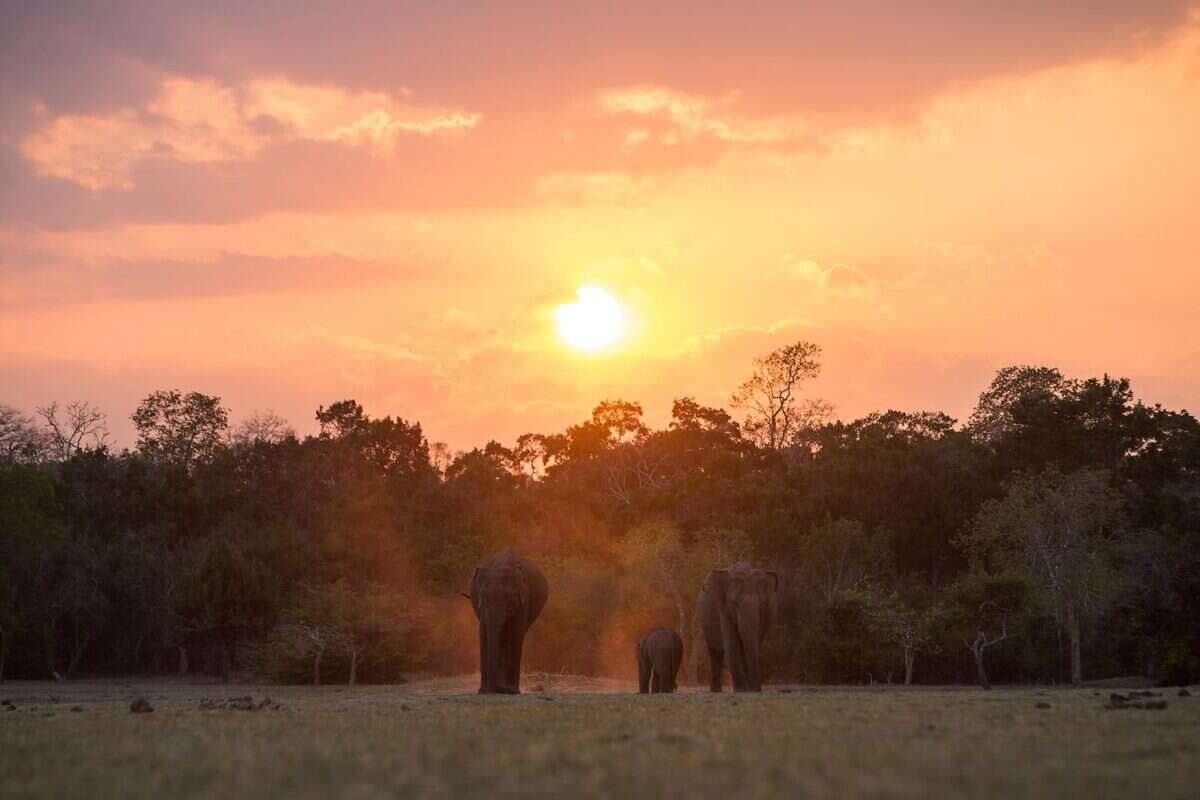
But he hasn’t stopped there. Goldsmith is also chairman of the Conservation Collective – a network of locally-focused foundations that raise funds to preserve and restore nature across the globe. The model for the charity was born almost a decade ago during a bachelor party in Ibiza. Not one for partying, Goldsmith spent most of the trip exploring the island’s beaches, woodlands and coves with a friend. Concerned by the impact of over-tourism on this beautiful corner of the world, they set up IbizaPreservation, drumming up cash from a club of donors with strong connections to the island which they invested in carefully selected local foundations.
Built on the success of these efforts, Goldsmith teamed up with Jade Brudenell in 2020 to set up another charity, this time global in reach. Since then, the Conservation Collective has grown to include 20 foundations providing grants to hundreds of local environmental initiatives peppered across the planet. Goldsmith loves watching the projects evolve and make a real impact on the ground. He beams with pride as he tells me about vital work carried out in Sri Lanka’s Central Highlands to establish corridors of nature for the safe passage of wildlife. Elsewhere, an initiative in the Grenadines has been helping to convert whale-hunting ships to whale-watching ships, providing funding to refit boats and training whalers to become guides.
The issue closest to his heart, however, will always be rewilding in the UK. “In my lifetime I want to see a massive and dramatic recovery of nature in Britain,” he tells me. “I want to see wolves in the highlands of Scotland, living in enormous mosaic Caledonian forests and I want prosperity for the people that live there…” For a moment it feels as if he’s practicing his closing argument for his debate at the Oxford Farming Conference tonight and, like everything he does, it’s clear he won’t go down without a fight.
[See also: Irene Forte on a Sustainable Future for Skincare]





